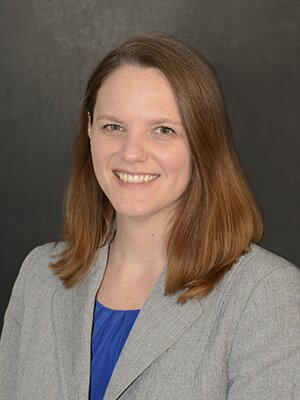
How would you describe your background? (I.E. where are you from? How did you first get interested in your area of research? Etc.)
When I started looking at colleges in my junior year of high school, I saw a major called “Neuroscience and Behavior” in a college brochure, and I thought it was the coolest thing I’d ever heard of – understanding the biological basis for how and why we do what we do. I went to Smith College for my undergrad, and my first year there was also the first year that neuroscience was listed as an official major in the course catalog. After finishing at Smith, I joined the neuroscience PhD program at the University of Virginia. My dissertation research was on how the brain controls ovulation. After finishing my PhD, I was a postdoc at Stanford in a lab that focused on epilepsy. While I was there, I learned about the clinical epilepsy research indicating that people with epilepsy are at higher risk for reproductive endocrine disorders, but it’s not clear why. I saw an opportunity to integrate what I learned in graduate school about the brain’s control of reproductive function and bring it to the basic science of epilepsy, and started studying this when I moved to Illinois and opened my lab in 2014.
What is your favorite part of the research process? (Learning new things you didn’t expect, presenting the information at conferences, the writing process, etc.)
I love the process of coming up with a research question, figuring out a way that we start to explore and hopefully answer this question, and seeing where the experiments and data take us. Writing grants can be stressful but I actually enjoy and appreciate this process because it forces me to really think about what would be the best way to approach our research. I also enjoy seeing the students and postdocs in my lab develop our ideas and take the research in new directions.
What made the University of Illinois a good place to conduct your research?
Illinois has key strengths that intersect with many different aspects of my lab’s research. For example, endocrinology and the biology of reproduction are key research strengths both in my home department, Molecular and Integrative Physiology, and on campus as a whole. We have formed great collaborations for mouse behavioral testing and neuroimaging, and the facilities on campus in the Beckman Institute and IGB are fantastic resources to have available.
If you were not in your current field of research, what would you be doing?
If I weren’t a scientist I probably would have ended up doing something related to government or law.
Can you talk about a time where you were greatly challenged?
When I was a postdoc, I was working on a project that was very risky and was essentially trying to answer a question that had been in the neuroscience field for almost 40 years – does the brain make its own benzodiazepine-type substances? My research indicated that a peptide called diazepam binding inhibitor might act as an endogenous benzodiazepine in a specific part of the thalamus, and suppress seizures. When we tried to get this work published, we were met with a lot of skepticism and it took over two years from the time that we first submitted it for review to finally get the paper accepted for publication. This process was very long and difficult and at the time it was pretty stressful.
What do you do in your spare time?
I enjoy cooking, playing with my dogs, watching TV (especially the Great British Baking Show), and reading. Before COVID, I played oboe in the Illinois Summer Band and at Parkland College. I’m looking forward to when that can safely resume again.
What’s a fact about you that people don’t expect to learn?
I grew up outside the US, and I studied and worked in Italy for two years during and after college. My Italian is a bit rusty now but I was fluent when I lived there.
If someone in the program, a student or a colleague, needed to refer to you but did not know your name, how would you prefer for them to refer to you?
The “hormones and epilepsy professor”, maybe?